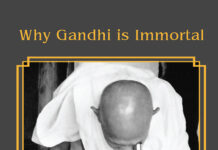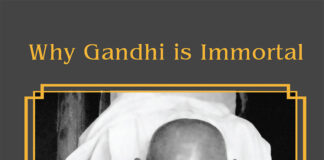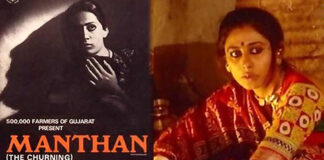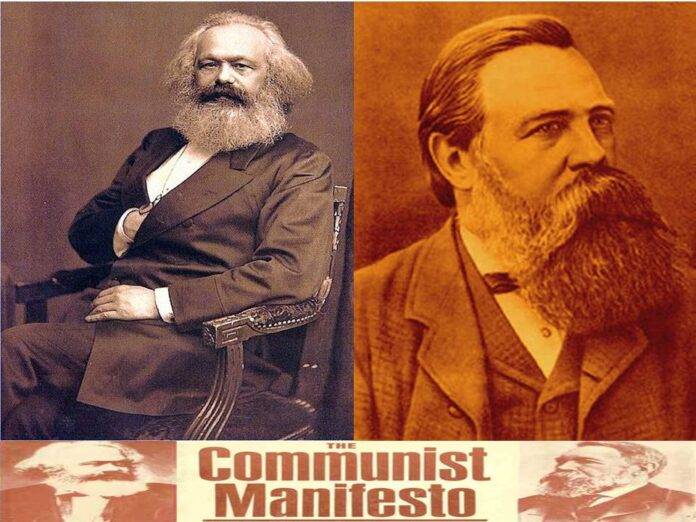
The Intellectual Heritage of Marxism
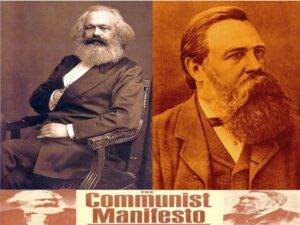
The Three Aspects of Marxism
What is ‘Marxism’? Well, let us say that it is a discursive field comprising the perspectives and positions of people who term themselves ‘Marxists’. And who might be the ‘Marxists’? Simply put, they are a set of people who operate with a world view broadly traceable to (in the way of conceptual and heuristic resources) several seminal texts authored by Karl Marx and Frederick Engels, both individually and in partnership, namely, Capital, The Communist Manifesto, The German Ideology, The Origin of the Family, Private Property and The State, Utopian and Scientific Socialism, etc. As I understand, this corpus provides the intellectual bases for, respectively, a world historical schema, a kind of political economy, and (despite its vaunted rationality and scientific outlook) a form of metaphysics. They together constitute, I suggest, the three primary aspects of Marxism. None of the aspects of Marxism are, however, in my view, fully original. They all betray intellectual influences much predating Karl Marx and Frederick Engels.
The basic outline of the Marxist world historical schema is provided by The German Ideology. This text attempts a holistic contemplation of all human history and identifies in it certain supposedly universal causative factors. Where does this framework of historical analysis come from? I am inclined to think that its origins go deep in history. It did not quite have its beginning with Marx and Engels. Let me explain.
Synchronic and Diachronic Narratives in Historiography
History writing is an exercise in ‘emplotment’. That is, in simple language, historians are people who relate stories with a certain plot structure. Historiography (the art and science of conducting historical inquiries), in other words, is dependent on narratives. Now, narratives discharging the historiographic function, we learn from Hayden White, could be ‘synchronic’ or ‘diachronic’. The ‘synchronic’ type of narrative traces continuities across its plot terrain. ‘Diachronic’ narratives, on the other hand, look for and emphasize major shifts and changes in the way of what they relate. Considered as a narrative art, the Marxist interpretation of history is somewhat curious since it is both ‘synchronic’ and‘ diachronic’. Relying on the expositions in The German Ideology, Marxist historians regard ‘class struggle’ a constant in history, while also highlighting the transience of the ‘forces and relations of production’ across ages. Further, implicit in Marxist historiography is the notion that the logic of ‘class struggle’ and ‘forces and relations of production’ considerably override and restrict individual human agency and lay down, so to speak, the preconditions under which human beings create history. I find these tendencies of Marxist historiography quite evocative of Christian historiography.
Synchronic Tendency in Pre-Christian Narratives
Going by what R.G. Collingwood writes in The Idea of History, there seems to have been a ‘synchronic’ tendency in the Western historiographic tradition in pagan antiquity. Collingwood, for instance, discusses this Roman historian, Livy, who authored a monumental, multi-volume history of Rome. Yet, despite the extensive period it covered, Rome comes across as being immutable and unchanging in Livy’s history. (Collingwood terms this manner of history writing ‘substantialist’. Livy, he argues, assumed that the Roman state is the bearer of a timeless, unchanging ‘substance’.)It seems that the properly ‘diachronic’ tendency was introduced in Western historiography by Christianity.
Christian Universalist Narrative
Christian historiography was universalist in its approach, it sought to consider all human history at once to uncover and comprehend the divine plan operative through it. This, in a way, as I see, made Christian historiographic practice ‘synchronic’, since it naturally assumed that human history represents the unfolding of a singular divine plan. Again, on account of this plan, Christian historiography ascribed a rather limited autonomy to human agency and considered it restricted by abstract, metaphysical forces. But Christian historiography was ‘diachronic’ too. In the Christian historiographic tradition, the advent of Christ divided human history into two broad epochs of darkness (prior to Christ) and light (after Christ).Christian historiography divided these broad epochs into further, smaller periods, each with its own characteristics. As we noted above, like Christian historiography, the ‘emplotments’ of Marxist historians too combine the ‘synchronic’ and ‘diachronic’ approaches and consider human agency hemmed in by forces beyond its control. And yes, Marxist historiography tends to share a universalist concern with its Christian counterpart.
Enlightenment Influence on Marxist Historiography
There is another source from which Marxist historiography derives its universalist concerns, namely, Enlightenment thought. The Enlightenment was an intellectual trend in late-eighteenth century Europe distinguished by the championing of reason andfreedom of thought, and a generally skeptical and questioning attitude towards established social and political usages and religious dogma. The Enlightenment thinkers tended to approach history through broad, big questions which had universalist implications. They sought to know, for instance, how human societies and institutions emerged, evolved, and assumed their current forms. Or they asked as to what factors cause civilizations to rise and fall. Historical inquiries of these sorts were taken up by Friedrich Schiller and Edward Gibbon. Then, Immanuel Kant postulated the history of humanity as a journey towards greater moral freedom motivated by reason(in the Fundamental Principles of the Philosophy of Morals). Due to the great premium the Enlightenment thinkers put on reason and rationality, Enlightenment historiography often scathingly value judged the past. It saw the past as a theater of irrationality instigated by religion. Both the broad or big question framework of historical inquiry (when examining institutions) and the tendency to value judge the past for varieties of ‘backwardness’ are implicit in Marxist historiography. These are its Enlightenment inheritances. The materialist focus of Marxist historiography is not fully an intellectual innovation either. It hearkens to the attempts made by certain French historians of the Restoration period (1815-1830) to understand the development of political constitutions with reference to social relations and ‘the state of property’. Marxist historiography, in this way, owes a debt to Augustin Thierry and Francois Guizot.
French Socialist Thinkers and Marxist Political Economy
Like the materialist aspect of Marxist historiography, Marxist political economy is also a French intellectual inheritance. As it seems, French socialist thought exercised a significant influence on Marx. By the time Marx appeared on the European intellectual scene, philosophies critical of private property and status divisions already had a few centuries’ old pedigree. Variants of these had been articulated as early as the sixteenth and seventeenth centuries by deviantChristiansects like the ‘Anabaptists’,‘Levellers’, and ‘Diggers’. By the end of the eighteenth century, however, two equally epochal developmentsmore or less coincided and provided a major spur to the growth of radical socialist ideas. These were the French and the industrial revolutions. The former generated a climate of political radicalism,while the latter reduced vast multitudes to the terrible miseries of factory labor and opened up incredible disparities of wealth and living standards.
Francois Babeuf and Louis Blanqui, insurgent Frenchmen both, propounded a radically new interpretation of freedom in the aftermath of the French revolution. According to Leszek Kolakowski, the historian of Marxism, they understood freedom in economic terms – as the right to pursue an economic activity. For them, freedom was not just the right of assembly or equality between estates. Babeuf went to the extent of conspiring an uprising to enforce his idea of freedom on France. The conspiracy was however discovered and he was guillotined in 1796. The Babouvist radical strategy was later pursued by Blanqui.
Saint Simon and Charles Fourier, French thinkers and economic theorists, contributed a number of innovative ideas to socialist discourse at the turn of the nineteenth century. Simon believed that political changes occur due to the transformationof the instruments of production. There was, in this sense, an element of economic determinism to Simon’s understanding of politics and political institutions. Simon, thus, took the position that contemporary industrial technology warrants a commensurate political change. He also thought that poverty and economic crises are caused by the anarchic nature of production and free competition. Simon, as I see, was skeptical of the unrestrained free market’s capacity to deliver economic justice and prosperity. Fourier drew up an economic scheme in which agricultural and industrial production would be carried out on a cooperative basis in communes called ‘phalansteries’. In other words, he wanted to do away with the private, profit oriented organization of agriculture and manufacturing. He was also critical of traditional sexual mores and the institution of family. As imagined by him, men and women living in the phalansteries would enjoy complete sexual freedomand abolish the conventional family, while the children would be raised communally. Further, Fourier believed that political freedom is meaningless without social freedom.He understood the latter as the liberty to express and develop one’s talents.
A major contributor to French socialist thought in the wake of Simon and Fourier was Pierre Proudhon, an economist. Like Simon, he was critical of the unrestrained free market. Proudhon thought that natural social harmony is an inalienable right of human beings while competition, inequality, and exploitation are incompatible with human rights. He was critical of private property too since he considered it a monopolistic right. Proudhon advocated the cooperative mode of production.
The revolutionary program implicit in Marxian political economy is rather evocative of the point of view of Babeuf and Blanqui. Marx’s economically deterministic understanding of politics and political institutions reflects the Simonian position, while his critique of the free-market echoes both Simon and Proudhon. Again, Fourier and Proudhon appear to have inspired him to critique and dismiss the institution of private property and endorse the collective, social ownership of the means of material production, as also their orientation away from the profit motive towards collective social good (in fact, Marx and Proudhon briefly corresponded before falling out). The Marxian critique of the bourgeois family (done in the Communist Manifesto) appears to be of Fourierian inspiration too. I am inclined to think that the Marxian postulate of the human ‘species essence’ might also be traced to Fourier. Marx, writes Kolakowski, thought that the essence of being human lies in the fulfillment of the creative urge (which is denied when one participates in capitalist labor processes). This Marxian idea, one might notice, is somewhat reminiscent of Fourier’s understanding of social freedom.
British influence on Marxist political economy
There is, by the way, a measure of British influence on Marxist political economy too. It is in the form of the ‘labor theory of value’ which, according to Harold Laski, is inspired by the work of classical economists like Adam Smith, David Ricardo, and John MacCulloch. However, Marx improvised on it by making it one of the bases of his critique of capitalism. Smith, Ricardo, and MacCulloch, writes Laski, had assumed that the alienation of value by labor to the employer is fair by postulating a perfect contractual equality between them. Marx, however, brought out the inherent inequality of this relationship by highlighting the fact that the former had nothing to sell but their labor power while the latter owned the means of production. In other words, he took the implicit position that labor produced and alienated value to the employer under duress.
The Precursors of Marxist Metaphysics aka Dialectics
Though termed a ‘science’ by the Marxists, the metaphysical part of Marxism, in my view, are ‘dialectics’. I call this aspect of Marxism metaphysical since it seems to me a great deal about looking into the apparently spiritual or ontological ‘essences’ of phenomena and the tensions and fractures obtaining in them (I have no training in philosophy and this is a purely lay opinion). What are dialectics, by the way? As explained by Joseph Stalin,they are ‘the science of discovering contradictions in phenomena, predicting the course these contradictions would take and developing a program of political action on the basis of that.’ Marx and Engels themselves never used the phrase ‘dialectical materialism’ in their writings (to the extent that I know). In this sense, the so-called science of dialectics expresses a creative utilization of the critical and analytical implications of certain frameworks traceable in the Marxian texts. To give you an example, take the claim made by Marx and Engels in The German Ideology that class struggle occurs when the forces of production develop beyond the prevailing relations of production in a socio-economic formation. This, so to speak, is a dialectical postulate. Dialectics are the Hegelian heritage of Marxism.
In my knowledge, Hegel provided the most straightforward formulation of the basics of dialectics in his Encyclopedia of Philosophical Sciences. These are, as far as I understand, as follows – the first stage in the dialectical process is one of fixity, when a concept or an idea has a stable definition, the second stage is one of ‘self-sublation’, when this idea both cancels out and preserves itself, in the third stage the absolute unity between the two oppositional stages is realized. Dialectics, I think, are also implied in Hegel’s Philosophy of History which posits history as the progress of Reason through the Spirit’s quest for freedom. The motivator of this process (once again, in my limited lay understanding) is the union of Reason and subjective will. Unlike their materialist Marxist counterpart, Hegelian dialectics are purely idealist – they only pertain to the realm of thoughts and ideas.
Marx was privy to Hegelian influence through the ‘Hegelian left’, a loose intellectual circle of sorts in early nineteenth century Europe. Two representatives of it are especially worth a mention, namely, Count August Cieszowski and Bruno Bauer. Count Cieszowski believed that philosophy must translate into action and actively abet the Spirit. In other words, he proposed that the Spirit must unite with the creative activity of Man (so as to transform the world?). Bruno Bauer, on the other hand, thought that ideas bear the strength to push the state in the direction of greater Reason. He also viewed reality as a collection of negatives which are keeping the Spirit from realizing its progress. Might this mean that he wanted ideas to be deployed in the aid of the Spirit? Perhaps. A young Marx came into contact with the Hegelian left during his student days at the University of Berlin (1836-1841). He seems to have built on their ideas for the subsequent few years. For instance, Kolakowskiargues that Marx’s writings between 1843 and 45 indicate him assuming that the Spirit shall not remain ‘submissive to existing facts.’ Though Marx eventually broke with the Hegelian left, I am tempted to argue that its imprint throughout remained on his thought. Just like Count Cieszowski and Bauer, Marx attributed actionable and transformative values to ideas. Please note that Marxian perspectives and positions are all meant to be concretely applicable and provide the bases for social and political activism – this is what makes Marxism, as they say, a ‘philosophy of praxis.’
– Saumya Dey
The author is professor of history at the Rashtram School of Public Leadership, Rishihood University, Sonipat, Haryana.

